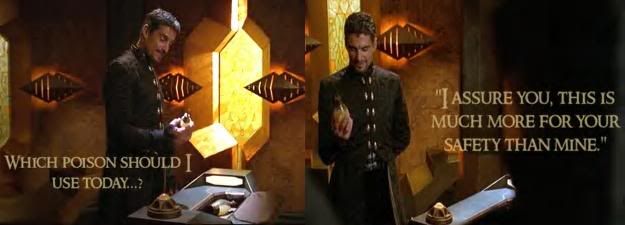I think that SG-1 and SG-A are showing and have shown that theres something about us that is different. I mean the Asgard and the Tok'ra have been out there for thousands of years, and little has changed amongst the Goa'uld. We show up and the entire galaxy is changed. It's our way of looking at things, our way of doing things (small victories) the drive we have to explore, and the need we feel to form alliances.
I have this feeling that SG-A is going to delve into the fact that we have a kind of responsibility in the universe. We are the second evolution of the ancients, once part (or perhaps the head) of the most powerful alliance in the universe. In SG-1 (Alliegence) we see the Tau'ri as mediators. We have our own space force now, I mean could you imagine that 8 years ago.
I love this type of sci-fi that works on so many levels, and the works on the higher levels and allows you to form your own ideas that migth fit, but they don't send you down a closed path.
I have this feeling that SG-A is going to delve into the fact that we have a kind of responsibility in the universe. We are the second evolution of the ancients, once part (or perhaps the head) of the most powerful alliance in the universe. In SG-1 (Alliegence) we see the Tau'ri as mediators. We have our own space force now, I mean could you imagine that 8 years ago.
I love this type of sci-fi that works on so many levels, and the works on the higher levels and allows you to form your own ideas that migth fit, but they don't send you down a closed path.






 ), I can accept whats gone on to take us to where we are today.
), I can accept whats gone on to take us to where we are today.
Comment